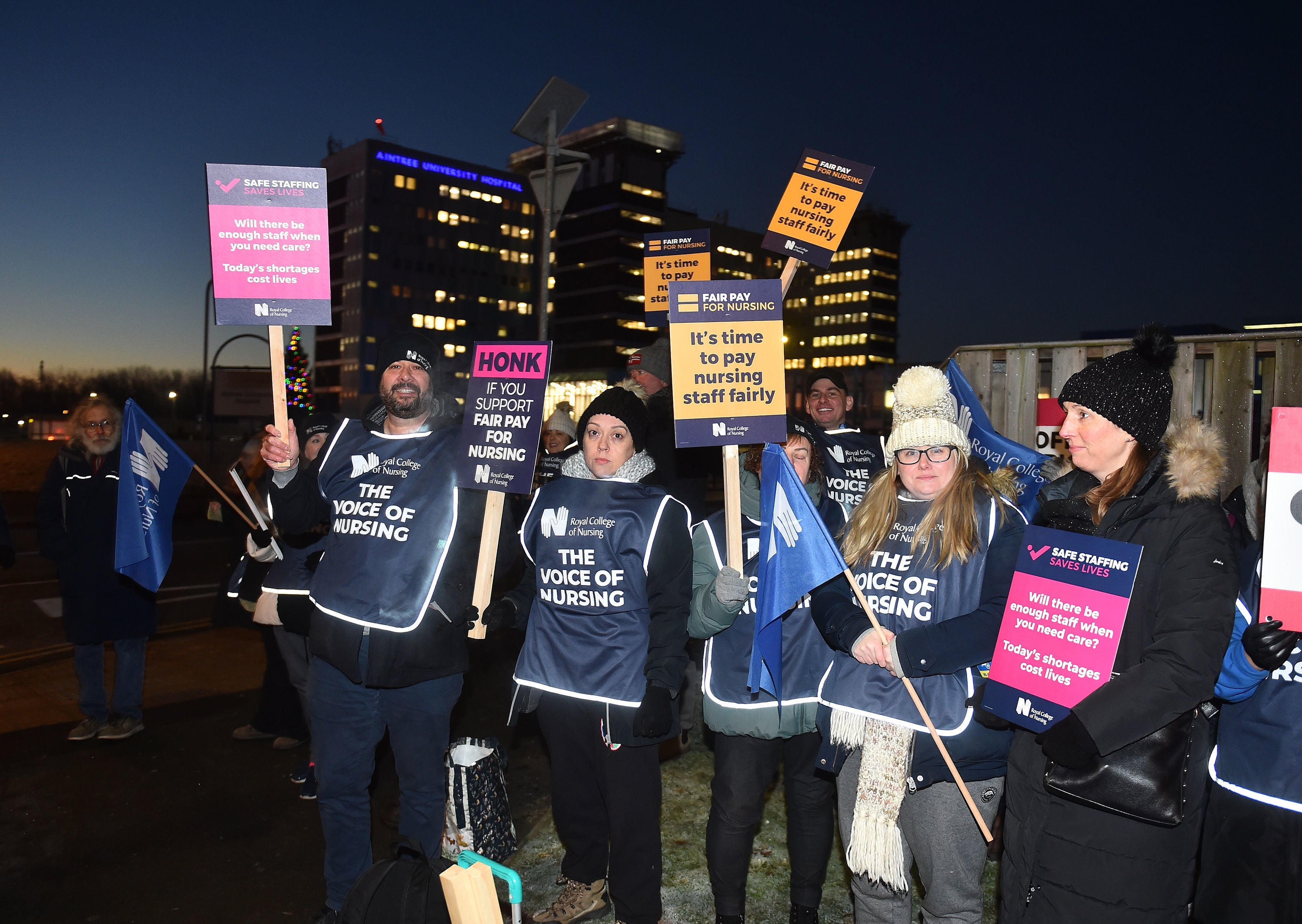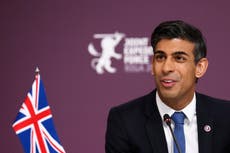Heart attack and stroke patients could be denied ambulances during strike
Concern grows over category 2 calls – as minister confirms military not be allowed to break red lights
People suffering from heart attacks or strokes at home may not be able to get an ambulance at home when staff strike on Wednesday, NHS officials have said.
Health secretary Steve Barclay will meet with union officials on Tuesday to insist that both category 1 calls, the most immediate life-threatening cases, and category 2 calls – including heart attacks and strokes – are answered.
Members of GMB, Unison and Unite unions will strike at ambulance services across England and Wales, but there are growing fears that emergency provision will be patchy in many parts of the country.
A Department of Health and Social Care source told The Times that Mr Barclay was “very concerned that some union officials still haven’t confirmed that they will cover all emergency calls in their talks with trusts”.
And one NHS ambulance chief told the newspaper: “The best we can hope for is that everyone stays indoors, no one falls over, no one gets ill and no one has a car crash.”
The North East Ambulance Service said on Monday that Unison had agreed that emergency care staff would be exempt from the strike only “to respond to category 1 calls and category 2 calls in a public place”.
Some category 2 calls could be treated differently since patients are more likely to be safer if at home, while someone lying in the street could be more vulnerable, a Unison union source told The Independent.
An ambulance source in the West Midlands where Unite workers are striking told The Independent that the union had agreed with West Midlands Ambulance that only category 1 and “high acuity” category 2 cases will be attended. It means patients who have suffered falls won’t be seen by ambulance staff.
Hospital chiefs are said to fear some older people could be left lying at home with a broken hip, at risk of getting hypothermia and dying, because of the potentially category 2 provision in some areas.
Health minister Will Quince said he and Mr Barclay would stress with union bosses that the government’s “expectation” is for both category 1 and category 2 emergency calls are covered as part of an agreed minimum service.
“My call to the unions ... is that category 1 and category 2 calls – which make up around 50 per cent of all calls to the ambulance service – should be covered as part of derogations [exemptions to the strike],” he told Sky News.
The health minister added: “There are there are minimum service levels which are negotiated at a local level called derogations between the unions and individual trusts. With ambulances, it is all happening at a local level … Those conversations are ongoing.”
“If you have chest pains, call 999 and the expectation is ... I don’t think that there is any paramedic, ambulance technician, anyone working in our NHS, whether they’re on a picket line or not, that would not respond to a 999 call where somebody has chest pains and there is a threat of a heart attack,” he told BBC Radio 4’s Today programme.
There is growing scepticism about the value of the 750 military personnel drafted in to cover emergency calls on Wednesday.
Mr Quince confirmed that Army personnel covering for striking ambulance workers will not be allowed to break red lights or turn on blue lights when driving ambulances.

But he insisted that military staff will still “play a hugely important role in supporting paramedics and ambulance staff in getting people to emergency departments”.
Military staff have also been told that they are not allowed to treat anyone as back up for striking paramedics. “It’s crazy … I’m not actually sure what we’re doing here,” one soldier told The Times.
It comes as a new 79-page government report on resilience warns personnel “cannot be the first port of call whenever an emergency hits” because of the pressures they are already facing at home and abroad.
Mr Quince also encouraged people not to take part in “risky activity” on Wednesday due to the scale of the disruption in the NHS. “Where people are planning any risky activity, I would strongly encourage them not to do so.”
Ambulance unions are demanding an above inflation pay rise after they were offered 4.75 per cent on average. Christina McAnea, Unison general secretary, said the government remained “completely intransigent” on pay – not expected to be discussed at Tuesday’s meeting.
It comes as nurses walk out on Tuesday for a second day of strike action – with union leaders warning they could “escalate” over the next six months if the government continues to refuse to negotiate on 19 per cent pay rise demands.
Royal College Nursing (RCN) general secretary Pat Cullen appealed directly to Rishi Sunak to “step in now and do the decent thing on behalf of every patient” by agreeing to discuss pay.
“Please do the decent thing also for nursing staff, get round the table and start to talk to me on their behalf,” the RCN boss said from a picket line in Newcastle.
Nurses would “no option but to continue strikes into January” if there isn’t a change in stance from the government, she told BBC Radio 4’s Today programme.
BUt Mr Quince suggested that striking nurses, ambulance drivers and paramedics should wait until April 2023 for the next independent pay review. “We look forward to the next pay review in April,” Mr Quince told Sky News.
Join our commenting forum
Join thought-provoking conversations, follow other Independent readers and see their replies
Comments



Bookmark popover
Removed from bookmarks